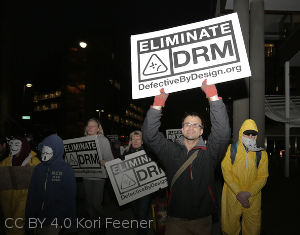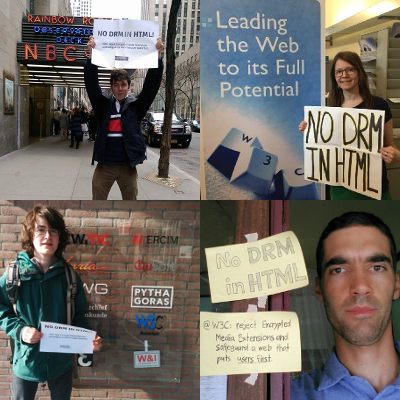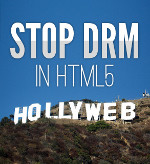As the Web's inventor flirts with disaster, Boston artists are putting out a call: March with us this Saturday
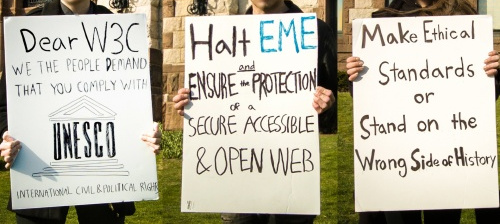
Signs from a demonstration at Cambridge, MA city hall last week.
The inventor of the Web is considering allowing corporate interests to change its underlying technology, extending their ability to control users' computers with DRM (Digital Restrictions Management), undermining Internet freedom, and exposing people to surveillance and criminal threats online.
As Web inventor Tim Berners-Lee considers this decision, people around the world are placing hundreds of phone calls urging him not to allow the change. Now a small artist-led group called Ethics in Tech is taking it to the next level—this Saturday, they will march to Berners-Lee's office in Cambridge, MA, to demand he heed the call of human rights groups, tens of thousands of Web users, and his fellow Web pioneers: reject DRM in Web standards and stand up for the free, fair Web that everyone except a handful of big companies wants.
 Protesters at a W3C meeting
Protesters at a W3C meeting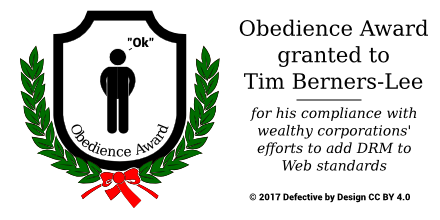

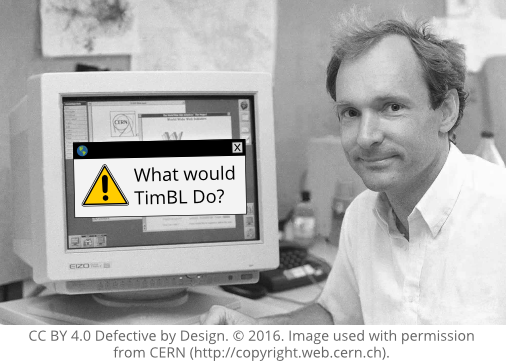 Twenty-five years ago, Berners-Lee invented the World Wide Web. Back then timbl -- as he's known online -- declined opportunities to lock down his creation and established himself as an advocate for a freedom-affirming, interoperable, and universally accessible World Wide Web. Now he's considering turning his back on this vision to make Netflix, Google, Apple, and Microsoft happy.
Twenty-five years ago, Berners-Lee invented the World Wide Web. Back then timbl -- as he's known online -- declined opportunities to lock down his creation and established himself as an advocate for a freedom-affirming, interoperable, and universally accessible World Wide Web. Now he's considering turning his back on this vision to make Netflix, Google, Apple, and Microsoft happy. Next week, demonstrators will gather at a meeting of the World Wide
Web Consortium (W3C) in Lisbon, Portugal. They will make the same
demand that we made at the last major W3C meeting in March: stop
streaming companies from inserting
Next week, demonstrators will gather at a meeting of the World Wide
Web Consortium (W3C) in Lisbon, Portugal. They will make the same
demand that we made at the last major W3C meeting in March: stop
streaming companies from inserting 